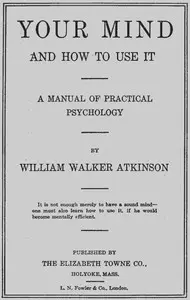"Dawn of a New Day" by Shoghi Effendi is a set of instructions and encouragement for the Baha'i community in India, probably from the early 1900s. It acts as a handbook, showing Indian Baha'is how to do their part, expand, and share the beliefs of Baha'u'llah. The book shines a light on bringing different people together through spirituality in India. Opening the pages, readers find Shoghi Effendi's dream for the Baha'i group in India, stressing how much good they can do if everyone works together. Letters to the National Spiritual Assembly stress the need to work as a team, form strong communities, and spread Baha'i ideas to all kinds of people. Effendi’s words give strength and offer practical steps, calling on believers to face their problems head on, and to show love, unity, and service as ways to reach their spiritual goals in India.

Dawn of a New Day
By Effendi Shoghi
Discover a past vision for India’s Baha'i community, urging its followers to embrace unity and service as pathways to spiritual fulfillment.
Summary
About the AuthorShoghí Effendi (; Persian: شوقی افندی; 1 March 1897 – 4 November 1957) was an Ottoman-born Iranian religious figure and the Guardian of the Baháʼí Faith from 1921 to 1957. As the grandson and successor of ʻAbdu'l-Bahá, he was responsible for creating a series of teaching plans that oversaw the expansion of the Baháʼí Faith to a number of new countries, and also translated many of the written works of crucial Baháʼí leaders. Upon his death in 1957, the Hands of the Cause, which included his Canadian wife Rúhíyyih Khánum, took on the role of overseeing the transfer of the religion's supreme legal authority to the Universal House of Justice, which has held elections every five years since 1963.
Shoghí Effendi (; Persian: شوقی افندی; 1 March 1897 – 4 November 1957) was an Ottoman-born Iranian religious figure and the Guardian of the Baháʼí Faith from 1921 to 1957. As the grandson and successor of ʻAbdu'l-Bahá, he was responsible for creating a series of teaching plans that oversaw the expansion of the Baháʼí Faith to a number of new countries, and also translated many of the written works of crucial Baháʼí leaders. Upon his death in 1957, the Hands of the Cause, which included his Canadian wife Rúhíyyih Khánum, took on the role of overseeing the transfer of the religion's supreme legal authority to the Universal House of Justice, which has held elections every five years since 1963.


















